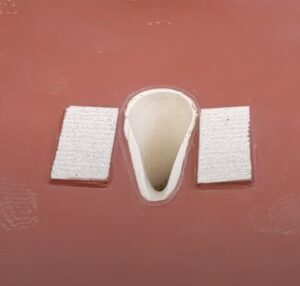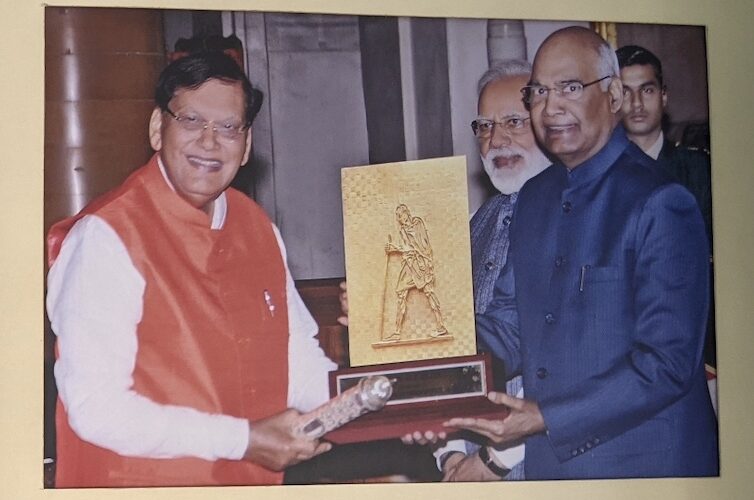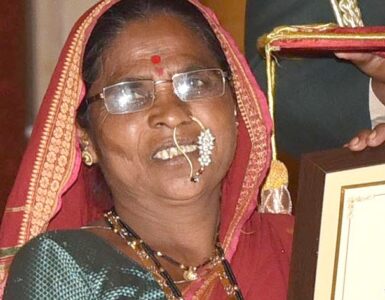Approximately 4,500 to 5,000 years ago, the ancient Indian civilizations of Harappa and Mohenjo-Daro in modern-day Pakistan, as well as Dholavira and Lothal in the Gujarat province of India, displayed remnants of advanced infrastructure such as wells, bathing tanks, overground and underground drains, toilets, soak-pits, roads, and lanes.
The W.C. toilet at Mohenjo-Daro, dating back to 2,500 B.C., is recognized as a pioneering work in sanitation. Dholavira, in the citadel section of the township, features a well-constructed wide underground drain with manholes at regular intervals for effective flow monitoring.
Despite this historical legacy of constructing toilets and sanitation facilities, a prevalent practice of open defecation has persisted in India. Such is the apathy that, despite the Indian government’s Swachh Bharat initiative to promote toilet construction, a significant number of people continue to prefer open defecation.
Deep-rooted beliefs and social customs have contributed to this trend, particularly in rural India. The evolution of sanitation facilities has been slow, with many households lacking toilets until the turn of the 21st century. Even when toilets were present, they were often dry latrines that required manual cleaning by a marginalized class referred to as “untouchables.”
Social customs and inadequate access to toilets, especially in rural areas, have further hindered the proper maintenance of sanitation facilities.
In light of this, there is one man who has emerged as a legend in the field of sanitation and social reform in India, who has significantly improved millions of lives – Dr. Bindeshwar Pathak.
The community of manual scavengers often subjected to inhumane treatment in the 19th and 20th centuries has undergone a transformative change due to the multifaceted approach taken by Dr. Pathak.
Through the lens of The Change Blazers, we bring you a series of life-changing stories aimed at ‘Me and You’ from people bringing in a positive change every day. This is the story of the man who played a transformational role in sanitation and hygiene practice in India, which will surely leave you inspired and hopeful for a better future.
Life Story
Dr. Bindeshwar Pathak was born on 2 April 1943 into a Brahmin family in the Vaishali district of Bihar. Pathak spent all his childhood and adolescent years in the village, where he completed his school education. He later moved to the state capital, Patna, and graduated in sociology.
He experienced a life-altering incident that motivated him to champion the cause of human dignity and equality. Witnessing the unjust abandonment of an untouchable boy left to die after a bull attack fueled his commitment to fulfill Mahatma Gandhi’s dreams.
In addition, open defecation, especially common among women, posed risks such as crime, snake bites, and animal attacks due to the lack of toilets.
In 1968, Dr. Pathak developed technology to replace dry latrines, aiming to eliminate the practice of untouchables cleaning bucket toilets in India. He faced challenges initiating his project, enduring financial struggles and bureaucratic hurdles.
Despite monetary hardships and mental depression, where he even contemplated suicide, he persevered and successfully promoted better household sanitation facilities, rehabilitated the scavengers into dignified trades, and brought them honor and dignity.
Dr. Bindeshwar Pathak Work

In 1970, he founded the Sulabh International Social Service Organisation, addressing sanitation-related issues, environmental degradation, and health hazards from open defecation and outdated toilet practices.
In 1974, he also conceptualized the idea of pay-and-use toilets, which helped Sulabh to become financially self-sufficient. These pay-and-use toilets were the first of their kind in India.
Low fees and installing them in public areas like bus stations, railway stations, parks, markets, and pay-and-use toilets attracted many people. This facilitated access to neat and clean sanitation facilities for travelers, migrant workers, slum-dwellers, the homeless, and sections of society who couldn’t afford a toilet at their homes.
Over the years, Sulabh International has catalyzed a silent revolution in sanitation attitudes, significantly improving public health and people’s lives.
Today, the organization has over 9000 public toilets, including at well-known tourist destinations like the Taj Mahal.
Dr. Bindeshwar Pathak established vocational training centers, schools, and charitable causes that support marginalized students and operate rehabilitation programs for the erstwhile scavenger families.
Beyond low-cost sanitation, Dr. Bindeshwar Pathak has made notable contributions to bio-energy, bio-fertilizer, and liquid and solid waste management.
In 1992, Dr. Pathak established the Sulabh Toilet Museum, a unique center that educates visitors about the historical and cultural aspects of sanitation, hygiene, and toilet technology.
He has given numerous discourses and authored many books, and there are multiple books written on his life and sanitation, contributing to his legacy.
Awards
In 1991, Dr. Pathak was awarded the Padma Bhushan for his monumental work in liberating and rehabilitating manual scavengers and preventing environmental pollution by providing pour-flush toilet technology as an alternative to dry latrines.
In 2024, the late Dr Bindeshwar Pathak posthumously received the Padma Vibhushan, India’s second-highest civilian award.
Among other awards, it includes the International Saint Francis Prize for the Environment in Italy, the Gandhi Peace Prize for Sulabh’s contribution to the Swachh Bharat Abhiyan, and the Stockholm Water Prize for 2009 by the Stockholm International Water Institute in Sweden.
Wrapping Up
In a country at a time when open defecation was a common phenomenon, the initiatives by Dr. Bindeshwar Pathak have made toilets more accessible and played a transformational role in integrating a section of the population who were victims of caste discrimination into mainstream society.






Add comment